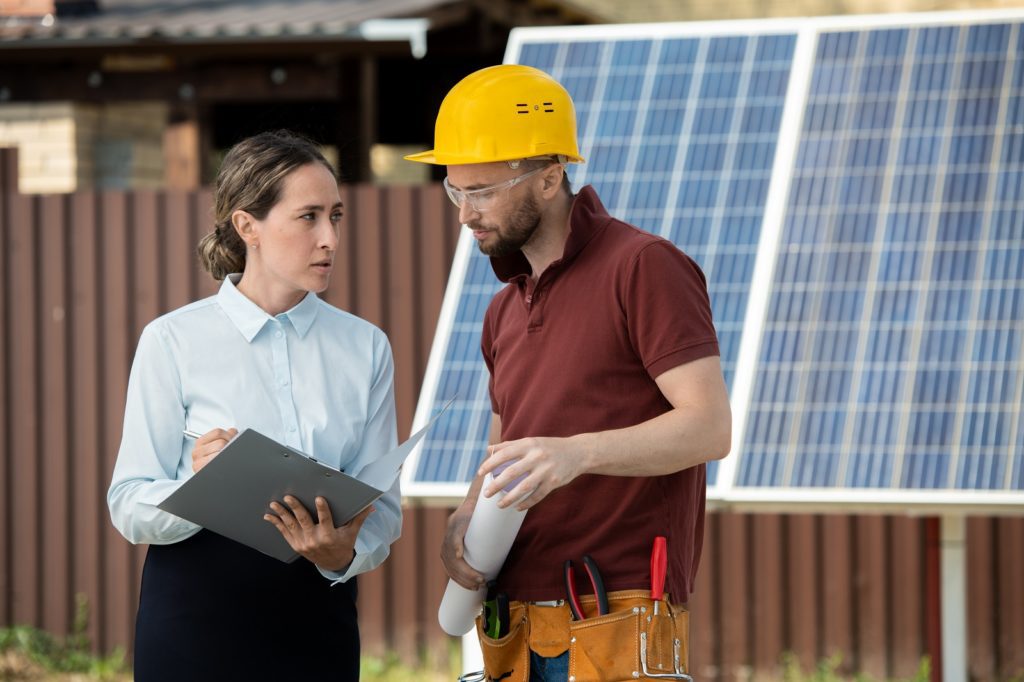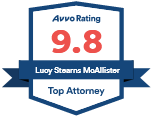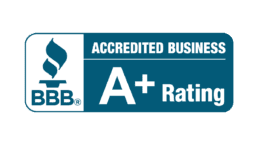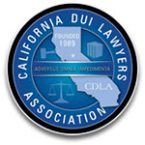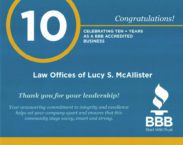The solar industry is arguably regulated more closely than any other home improvement industry since it’s connected to the utility grid — and subject to utility processes and pushback. Solar installers in California should pay close attention to two recent bureaucratic rulings that could affect their ability to continue business as usual.
New client paperwork requirement
In 2019, the California Public Utilities Commission developed a guide that solar installers must give to prospective customers in investor-owned utility (IOU) territories explaining everything they “need to know” before investing in solar, called the California Solar Consumer Protection Guide.
Although contractors have technically been required to submit signed consumer guides since 2019, there weren’t consequences for noncompliance until this year. If the IOUs find that contractors are not uploading completed, signed documents, they will be added to a public list of non compliant installers for that quarter and one following. Additionally, the IOUs will manually audit the interconnection applications of non compliant installers during their semi-annual spot-checks. In California, residential interconnection applications are usually reviewed almost immediately by IOUs.
If you are a solar contractor who failed to comply with all of the requirements as far as administering it correctly, you could face unintended consequences for non-compliance.
New licensing requirements for solar + storage installers
 While the consequences of an unsigned consumer protection guide is a simpler paperwork issue, a new ruling by the Contractor State Licensing Board (CSLB) could cause more complex problems for some of California’s installers.
While the consequences of an unsigned consumer protection guide is a simpler paperwork issue, a new ruling by the Contractor State Licensing Board (CSLB) could cause more complex problems for some of California’s installers.
The board recently ruled that a C-46 license is no longer eligible to install solar + storage systems in the state. According to the California Solar & Storage Association (CALSSA), the ruling makes it so that every person involved on a solar + storage installation — even if they only install panels and don’t touch the electrical portion — must be a C-10 electrical contractor in the state of California, or an electrical trainee registered in a state-approved apprenticeship program on a one-to-one ratio with very few exceptions.
The C-10 as well as the General A and General B licenses, operating within their classifications, are the only remaining licenses eligible to install solar + storage systems.
CALSSA analyzed Self-Generation Incentive Program (SGIP) and CSLB data and found only 22% of the solar + storage installations in the past five years were done by contractors holding just a C-10 license. The majority of systems are being installed by contractors who hold a C-46 solar contractor license, with and without other licenses.
Obtaining a C-10 license requires workers to complete four years of on-the-job experience at a journeyman level or higher, pass the electrical exam, finish an electrical apprenticeship program in the state and more. By comparison, the C-46 license requires workers to have either a college degree or four years of solar experience and to pass a solar-specific test.
CALSSA is in talks with CSLB now to get further clarification on this rule and explore legal options.
In the meantime, a California solar contractor who does not submit all necessary documentation to the IOUs and isn’t equipped to hire workers to satisfy new CSLB licensing requirements could face legal consequences that threaten their professional license.
Signing a contract with a consumer for a defined scope of work, cost and set of deliverables/milestones seems like it would protect a Contractor from most consumer complaints, but nothing could be further from reality. Consumers routinely complain to the Contractors State License Board of California (CSLB) for even minor issues (in addition to complaining to the License Bond Surety and posting negative reviews on social media and review sites).
Stage I: Contractor Receives CSLB Intake Department Letter
When a complaint is received by the Contractors Board, it is assigned to an Intake Officer who will often try to resolve the case between the two parties before sending it to a CSLB Investigator. The CSLB will send a letter to the Contractor, advising that a complaint has been made by the Complainant, identifying the address where the project is located, and an advisory that the contractor should contact the customer and attempt to settle the matter. This letter also requires a formal response to be provided by the Contractor the Contractors Board regarding the attempt to settle.
The Contractor must advise the Board which of the following resulted from Contractor and Complainant negotiations:
- A settlement was reached (in which case they must identify the amount of the settlement) or;
- A settlement was offered by the Contractor but was rejected by the Complainant or;
- They agreed that there were no violations
If you are a California Solar Contractor who has received a letter from the Contractor’s Board indicating that there is a complaint against you, it is imperative that you get experienced legal advice about how to best respond to the Complainant and the CSLB before you take any further steps.
Because you need to document your attempts to resolve the situation in writing, it is imperative that you understand how to provide the right evidence to the CSLB. You need to know how to persuasively refute the Complainant’s claim and if there are issues of workmanship or warranty, offer to correct the work. You must never appear to have “abandoned” the project.
It is also important to respond in a timely manner as this will increase the chances that the matter will not proceed on from Intake to Investigation. If you as the Contractor respond to the CSLB letter but the Complainant does not, the Contractors Board often will choose to just close the file. Legal advice at the stage is critical to retain since this documentation will become part of your case if you are unable to resolve the issue with the Complainant and the CSLB investigation moves forward.
Stage 2: CSLB Investigation Launched
If a Contractor does not respond to the Intake Department letter, then they will assign it to an CSLB Investigator who will retain an industry expert to review the Contractor’s work. It is easy for these experts to identify minor issues which were not spelled out in the contract between the Contractor and Complainant and technical violations which can lead to a Citation. Hiring a lawyer at this stage is critical for three reasons: First in order to assemble the best documentation to support your case; Second to advise you about what to do if the CSLB offers you their Arbitration Program (something they can compel you to do if the Complaint is for less than $15,000); and Three, avoiding a Citation and a formal Accusation, both of which will be disciplinary actions which will be permanently associated with your license for years to come.
If you are a California Solar Contractor under investigation by the Contractors State License Board of California (CSLB) due to a dispute with a client Complainant, you should immediately retain the services of an experienced attorney in licensing law.
The Law Offices of Lucy S. McAllister have successfully represented a wide range of California-licensed Solar Contractors being investigated by the CSLB. We have the knowledge and experience to craft a comprehensive strategy and are dedicated to navigating your specific case from the accusation and through the investigation to the disciplinary process and we can legally defend your professional interests.
For additional information or to schedule a consultation about your professional licensing issue, please contact us today at (877) 280-9944.

